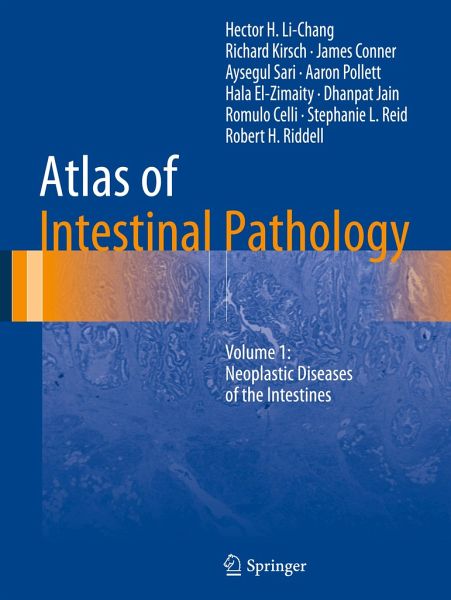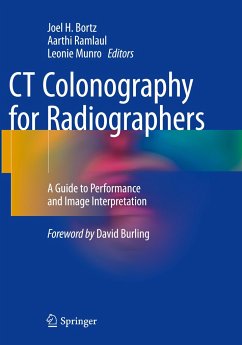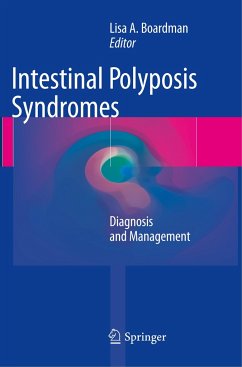
Atlas of Intestinal Pathology
Volume 1: Neoplastic Diseases of the Intestines

PAYBACK Punkte
53 °P sammeln!
Intestinal neoplasia comprises a large part of a surgical pathologist's workload. Pathologists play a key role not only in the classification of malignancies but also in assisting screening programs, identifying incidental neoplasms, and guiding treatment by providing essential prognostic features for individual entities. A large variety of neoplasms affect the intestines, and there is ongoing discovery of new entities and prognostic features for known diseases. Pathologists and trainees should have a solid understanding of key morphologic features, pitfalls, and differential diagnoses. Import...
Intestinal neoplasia comprises a large part of a surgical pathologist's workload. Pathologists play a key role not only in the classification of malignancies but also in assisting screening programs, identifying incidental neoplasms, and guiding treatment by providing essential prognostic features for individual entities. A large variety of neoplasms affect the intestines, and there is ongoing discovery of new entities and prognostic features for known diseases. Pathologists and trainees should have a solid understanding of key morphologic features, pitfalls, and differential diagnoses. Importantly, pathologists should recognize and communicate features that help their clinical colleagues in making treatment decisions, with the ultimate goal of benefiting the patient first and foremost.
The first volume of the Atlas of Intestinal Pathology provides a comprehensive yet concise, primarily visual review of intestinal neoplasms. It also serves asa useful resource primarily for pathologists and trainees in pathology by providing a concise yet comprehensive summary of morphology of intestinal neoplasia. Clinical practitioners and trainees also benefit from an understanding of the pathologic correlates to the diseases they manage.
The first volume of the Atlas of Intestinal Pathology provides a comprehensive yet concise, primarily visual review of intestinal neoplasms. It also serves asa useful resource primarily for pathologists and trainees in pathology by providing a concise yet comprehensive summary of morphology of intestinal neoplasia. Clinical practitioners and trainees also benefit from an understanding of the pathologic correlates to the diseases they manage.












